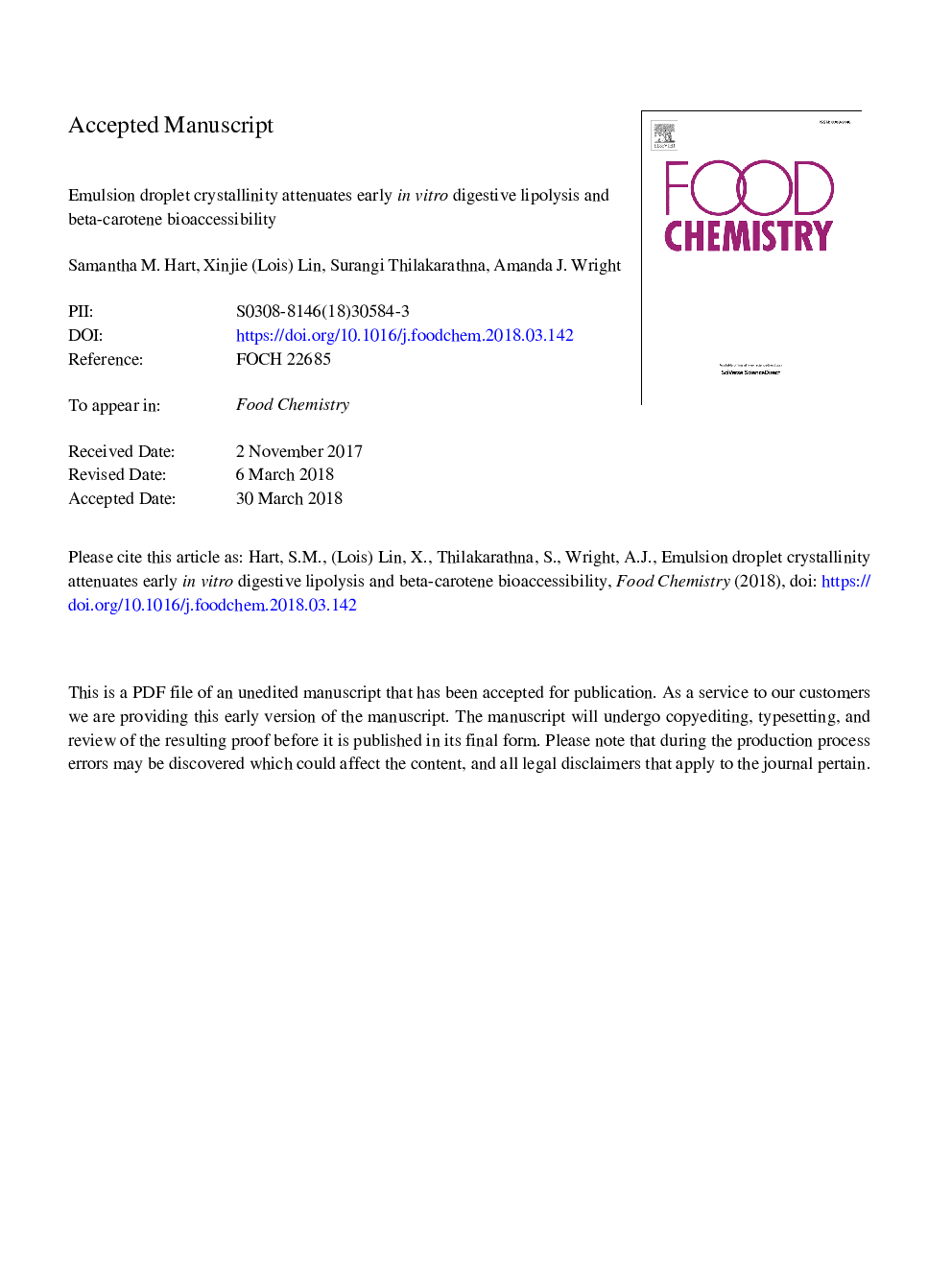| Article ID | Journal | Published Year | Pages | File Type |
|---|---|---|---|---|
| 7584988 | Food Chemistry | 2018 | 28 Pages |
Abstract
The impacts of lipid crystallinity on in vitro digestive lipolysis and bioaccessibility of encapsulated (0.1â¯wt%) beta-carotene (BC) were investigated for a 15â¯wt% cocoa butter emulsion prepared as crystalline (i.e. solid emulsions, SE & SE-BC) or undercooled (liquid emulsions, LE & LE-BC) droplets at 25â¯Â°C. Particle size distributions (D4,3 â¼0.7â¯Î¼m), morphology (spherical), polymorphism (beta-V), thermal behavior (peak melting â¼30â¯Â°C), zeta potential (â¼â44â¯mV) and BC degradation under accelerated lighting conditions were similarly extensive. Following exposure to simulated gastric conditions, duodenal hydrolysis and BC bioaccessibility were lower for SE-BC up to 2â¯h (Pâ¯<â¯0.05). Ultimately, samples with both solid and liquid droplets were hydrolyzed extensively and BC bioaccessibility did not differ (Pâ¯>â¯0.05). Therefore, for compositionally equivalent emulsions, lipid droplet solid state delayed digestive lipolysis and bioactive solubilization. These results help to clarify the role of lipid physical state on dietary lipid digestion and bioactive release.
Related Topics
Physical Sciences and Engineering
Chemistry
Analytical Chemistry
Authors
Samantha M. Hart, Xinjie (Lois) Lin, Surangi H. Thilakarathna, Amanda J. Wright,
